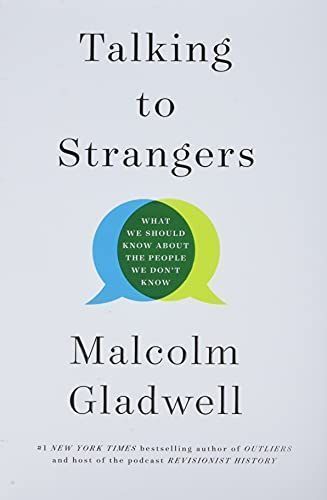
Talking to Strangers What We Should Know about the People We Don’t Know
The #1 New York Times and top ten Sunday Times bestseller 'I love this book . . . reading it will actually change not just how you see strangers, but how you look at yourself, the news - the world. Reading this book changed me' Oprah Winfrey The highly anticipated new book from Malcolm Gladwell, international bestselling author of The Tipping Point, Blink, Outliers, What the Dog Saw and David and Goliath The routine traffic stop that ends in tragedy. The spy who spends years undetected at the highest levels of the Pentagon. The false conviction of Amanda Knox. Why do we so often get other people wrong? Why is it so hard to detect a lie, read a face or judge a stranger's motives? Through a series of encounters and misunderstandings - from history, psychology and infamous legal cases - Malcolm Gladwell takes us on an intellectual adventure into the darker side of human nature, where strangers are never simple and misreading them can have disastrous consequences. No one challenges our shared assumptions like Malcolm Gladwell. Here he uses stories of deceit and fatal errors to cast doubt on our strategies for dealing with the unknown, inviting us to rethink our thinking in these troubled times.
Reviews
Pratik M@pcmhatre
Ashley Denktas@foxface
Erin G.@toughcakes
Louisa@louisasbookclub
Craig Jellick@craigjellick
Hannah Yoon@yoonreads
Hooman Rostami@hooman
Rebeca Keren Nuñez@rebecanunez
Quinn Tenorio@qkt
Jaden Nelson@unojaden
Mani Mohan@manee
Andy Bosselman@helloandyhihi
rumbledethumps@rumbledethumps
Sarah Schumacher@smschumacher
Jonathan Tysick@jtsick6
Wynter@wynter
div@div
haifa@haifa
Ali Angco@aliangco
Raven@ravenhoward
Beau@hyggeligbo
Erwin Lemuel Oliva@erwinoliva
Ivy X@poisonivayy
Sierra Nguyen@sierra-reads
Highlights
angie@angieyarovoy
Page 346
angie@angieyarovoy
Page 7
Stephanie@smcquade
Stephanie@smcquade